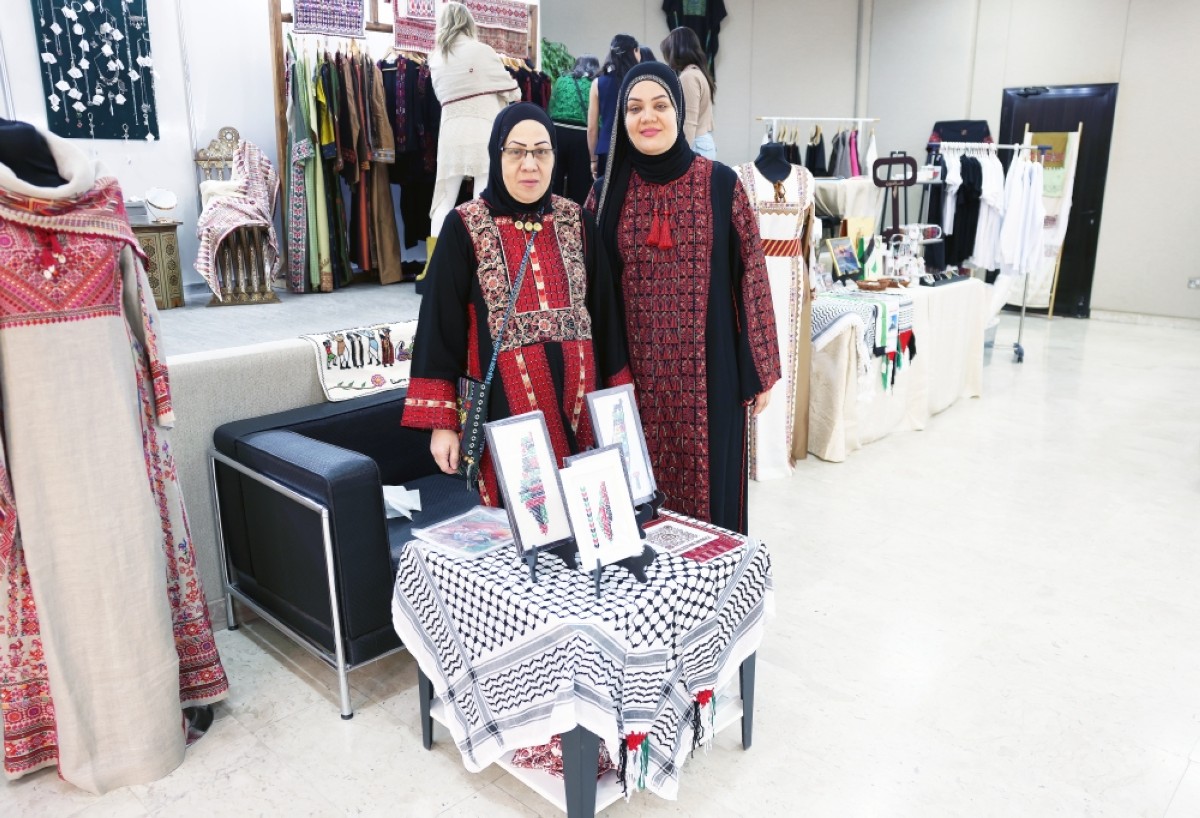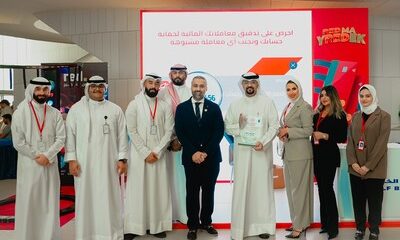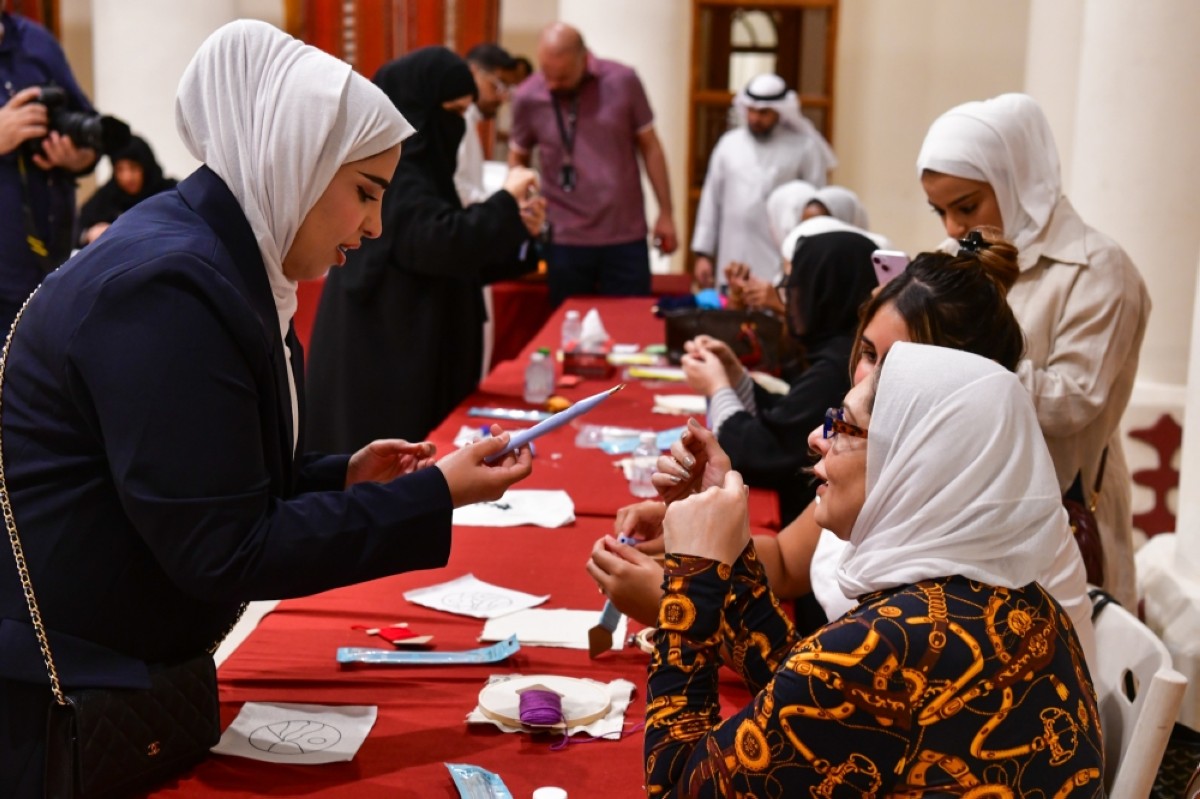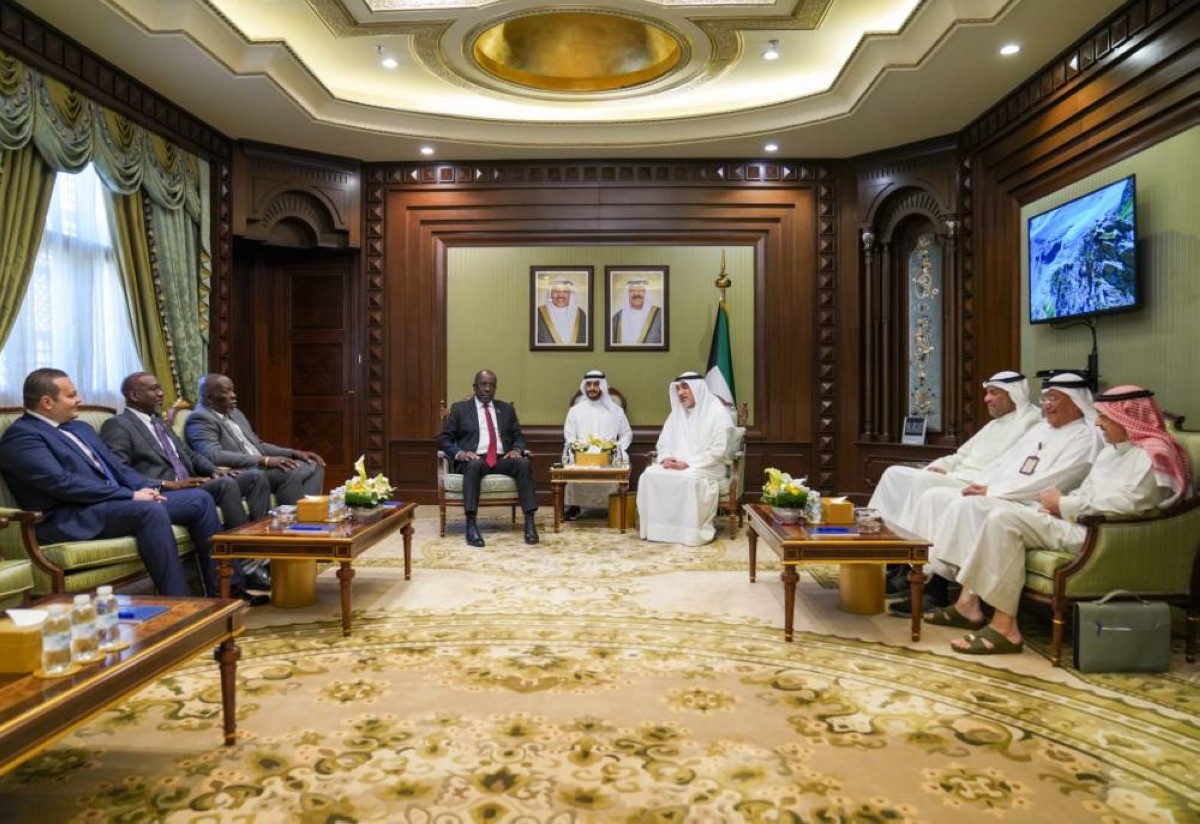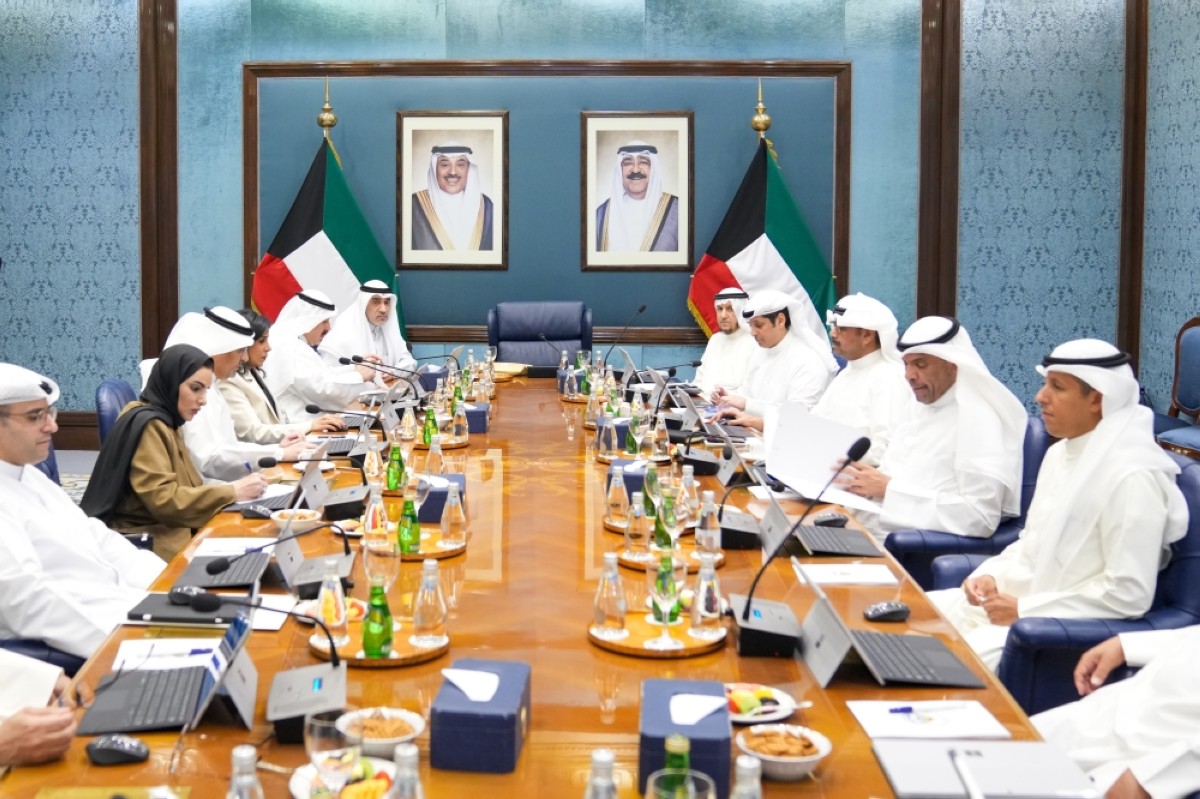KUWAIT: From the refugee camps of Jordan, the devastated city of Al-Khalil (Hebron) and the olive farms of Nablus, locally made products have arrived in Kuwait for the 61st exhibition of the Palestinian Culture Center—supporting families, preserving heritage and reviving nearly lost traditions. Running until Monday at the women’s cultural & social society in collaboration with the Palestinian Embassy, the exhibition has been held twice a year in Kuwait since the 1990s.
It is built around two core objectives: preserving the ancient art of tatreez—Palestinian cross-stitch embroidery that dates back over a thousand years—and empowering women. This year, one-third of the proceeds go directly to around 350 Palestinian women artisans, many of whom craft these pieces under harsh conditions in refugee camps across Jordan, completely different from conditions experienced before the Nakba in 1948.
“Women used to embroider while sitting under trees, surrounded by flowers, sipping coffee and chatting… that disappeared,” said Faten Abu-Ghazaleh, spokesperson and long-time volunteer at the Palestinian Culture Center. “They then lived very ugly refugee camps, so they stopped embroidering, and the younger generation no longer knew how to do it. We wanted to make sure that this tradition was not lost” For many of the women, tatreez has become their only source of income. “It’s very important for us to grant these women a better quality of life,” Abu Ghazaleh said.
She shared stories of women whose lives were transformed by their embroidery. “One of them wanted to do a master’s in physics. She was an A student, but didn’t have the money. So the center told her: ‘Embroider this piece and we will pay for your tuition.’ That’s exactly what happened.” In another instance, embroidery helped a woman begin a new chapter of her life. “One woman wanted to get married, didn’t have enough to start her new life,” Abu-Ghazaleh shared. “So she embroidered a big tablecloth in return of 100 dinars. Maybe that’s not much, but for her, it was a step to improve the quality of her life.
KUWAIT: A close-up of traditional Palestinian tatreez (cross-stitch embroidery) featuring geometric motifs and vibrant floral patterns. – Photos by Yasser Al-Zayyat
A volunteer from Palestinian Culture Center stands at the booth selling ceramic pieces from Al-Khalil (Hebron city).
Ceramic pieces from Al-Khalil (Hebron city) in Palestine featured at the exhibition.
Handcrafted Palestinian tatreez embroidery depicting traditional men’s wedding motifs.
Traditional tatreez embroidery on display at the Palestinian Culture Center exhibition in Kuwait, featuring motifs of identity, resistance, and homeland.
Only 200 remain
More than a craft, it is a direct link to their identity and dignity. “Tatreez is an expression of belonging to the land,” said Abu Ghazaleh. “This is art. It is an expression of hope, love, and defiance.” The exhibition now reaches far beyond tatreez, delving into the fading art of traditional ceramics from Al-Khalil (Hebron city). Once a thriving craft passed down for centuries, it now teeters on the brink of extinction. “It’s a 500-year-old tradition,” Abu Ghazaleh said. “But only 200 artisans remain. Settlers storm their workshops, shattering their work with sticks. Survival is a daily battle.”
Tables are also lined with olive oil, za’atar, and maramieh (sage)—symbols of Palestinian farmers’ enduring resilience. “Some of our olive trees are called Roman olive trees—they’re 2,000 years old. Always giving. Like the Palestinian farmer,” she said. What was once a season of joy and harvest has turned into a battlefield. “Olive season used to be a celebration of life,” Abu Ghazaleh said. “Schools would close; children would help pick olives. Now settlers burn the trees or block the fields. It’s a struggle for survival.”
A section of the exhibition highlights donated items from families in Kuwait—Kuwaitis and other nationalities alike—a testament to broader solidarity. “Support from Kuwait? It’s remarkable,” said Abu Ghazaleh. “Maybe because early teachers in Kuwait were Palestinian or because some Kuwaiti families even owned property in Ramallah.” The exhibition also showcased books spanning children’s stories, cookbooks, tatreez guides, and political analysis. “We’re determined to preserve every piece of our story,” Abu Ghazaleh said.






